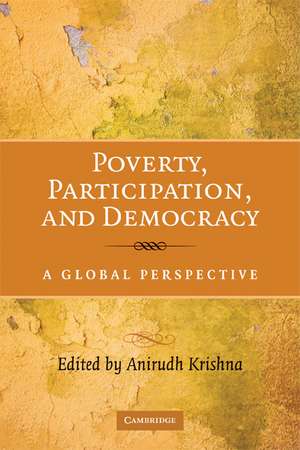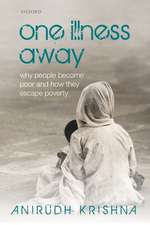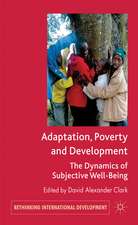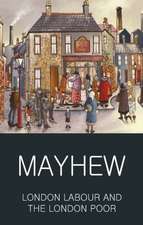Poverty, Participation, and Democracy: A Global Perspective
Editat de Anirudh Krishnaen Limba Engleză Paperback – 20 iul 2008
Preț: 229.12 lei
Nou
Puncte Express: 344
Preț estimativ în valută:
43.86€ • 45.59$ • 36.37£
43.86€ • 45.59$ • 36.37£
Carte tipărită la comandă
Livrare economică 06-20 februarie 25
Preluare comenzi: 021 569.72.76
Specificații
ISBN-13: 9780521729604
ISBN-10: 0521729602
Pagini: 208
Ilustrații: 22 tables
Dimensiuni: 153 x 228 x 14 mm
Greutate: 0.34 kg
Ediția:1
Editura: Cambridge University Press
Colecția Cambridge University Press
Locul publicării:New York, United States
ISBN-10: 0521729602
Pagini: 208
Ilustrații: 22 tables
Dimensiuni: 153 x 228 x 14 mm
Greutate: 0.34 kg
Ediția:1
Editura: Cambridge University Press
Colecția Cambridge University Press
Locul publicării:New York, United States
Cuprins
1. Introduction: poor people and democracy Arnirudh Krishna; 2. Poor people and democratic citizenship in Africa Michael Bratton; 3. Do poor people care less for democracy? Testing individual-level assumptions with individual-level data from India Anirudh Krishna; 4. Inequality and democracy in Latin America: individual and contextual effects of wealth on political participation John A. Booth and Mitchell A. Seligson; 5. The poor and the viability of democracy Adam Przeworski; 6. Conclusion: implications for policy and research Anirudh Krishna and John A. Booth.
Recenzii
'A significant and invigorating advance in our understanding of democracy's likely future in the developing world, with clear policy implications about how to support fragile democracies more effectively.' Thomas Carothers, Carnegie Endowment for International Peace
'This is a theoretically and politically important book, based on an impressive set of empirical evidence provided by leading survey researchers. The book subjects generalizations about differences between rich and poor people based on findings of studies of American political behavior to tests with data from more than 35,000 interviews in 24 countries in Africa, Asia, and Latin America. The test results prove these generalizations wrong; poor people in the developing world are not less supportive of democracy and less involved in democratic politics than their more affluent fellow citizens. Education is the crucial variable, and the spread of education to rural areas and poorer sectors of the population has considerably widened the support base for democracy. The authors are fully aware of potential problems with the depth of this support and with the institutional safeguards for the exercise of democratic rights by the poor, but they rightfully insist that observers and practitioners alike have to take seriously the overwhelming evidence of support for democracy among the world's poor.' Evelyn Huber, University of North Carolina, Chapel Hill
'This book offers an authoritative challenge to the prevailing belief that in the developing world, prosperous groups provide democracy with the greatest, most committed support. It is anchored in solid empirical evidence - which, unusually, comes from diverse regions of the world. Those concerned with democratic theory and development will find it impossible to ignore.' James Manor, University of London
'This important collection of papers on the political attitudes of the poor in the developing world significantly recasts the debate on the contemporary relationship between poverty and democracy. Not only does it offer powerful new empirical evidence from Africa, Latin America and South Asia to reject the conventional wisdoms of modernization theory that the poor do not make good democrats, the book's analysis of the data, attention to nuances and probing questions will fundamentally change how scholars think about these issues.' Nicolas Van de Walle, Cornell University
'This is a theoretically and politically important book, based on an impressive set of empirical evidence provided by leading survey researchers. The book subjects generalizations about differences between rich and poor people based on findings of studies of American political behavior to tests with data from more than 35,000 interviews in 24 countries in Africa, Asia, and Latin America. The test results prove these generalizations wrong; poor people in the developing world are not less supportive of democracy and less involved in democratic politics than their more affluent fellow citizens. Education is the crucial variable, and the spread of education to rural areas and poorer sectors of the population has considerably widened the support base for democracy. The authors are fully aware of potential problems with the depth of this support and with the institutional safeguards for the exercise of democratic rights by the poor, but they rightfully insist that observers and practitioners alike have to take seriously the overwhelming evidence of support for democracy among the world's poor.' Evelyn Huber, University of North Carolina, Chapel Hill
'This book offers an authoritative challenge to the prevailing belief that in the developing world, prosperous groups provide democracy with the greatest, most committed support. It is anchored in solid empirical evidence - which, unusually, comes from diverse regions of the world. Those concerned with democratic theory and development will find it impossible to ignore.' James Manor, University of London
'This important collection of papers on the political attitudes of the poor in the developing world significantly recasts the debate on the contemporary relationship between poverty and democracy. Not only does it offer powerful new empirical evidence from Africa, Latin America and South Asia to reject the conventional wisdoms of modernization theory that the poor do not make good democrats, the book's analysis of the data, attention to nuances and probing questions will fundamentally change how scholars think about these issues.' Nicolas Van de Walle, Cornell University
Descriere
Evidence from 24 countries shows that political attitudes and participation levels are unaffected by relative wealth.














